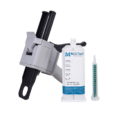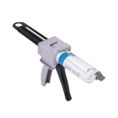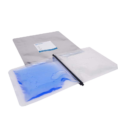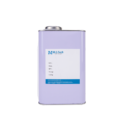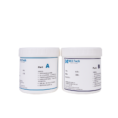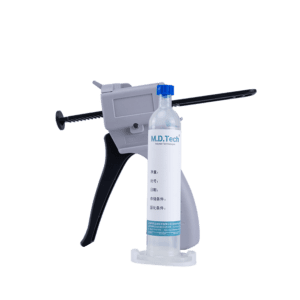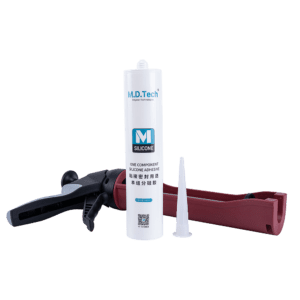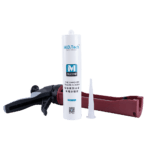MDSI 7420 One component Addition curing silicone adhesive
- One component half flow, fast heating curing
- Clear or chromosomal silicone elastomer adhesive
- A wide range of substrates can be bonded without primer, such as stainless steel, glass, ceramics, etc
- Excellent flexibility and tear resistance
- Addition curing system: no curing byproducts
- Certified by ROHS\REACH
- It is elastic and stable in the temperature range of -60℃to +280 ℃
Product characteristics
- One component half flow, fast heating curing
- Clear or chromosomal silicone elastomer adhesive
- A wide range of substrates can be bonded without primer, such as stainless steel, glass, ceramics, etc
- Excellent flexibility and tear resistance
- Addition curing system: no curing byproducts
- Certified by ROHS\REACH
- It is elastic and stable in the temperature range of -60℃to +280 ℃
| GB/T | ASTM | Properties | Units | Measured value | ||||||
| – | 7420T | 7420W | 7420B | 7420G | ||||||
| Color status | Transparent | White | Black | Grey | ||||||
| Status | Semi-fluid slime | |||||||||
| 10247-2008 | D1084 | Viscosity | mPa.s | 40,000 | 75,000 | |||||
| 13354-92. | D792 | Specific Gravity | g/cm3 | 1.03±0.03 | 1.03±0.03 | |||||
| Physical properties after curing at 135 ° C for 30 minutes | ||||||||||
| Color | Clear colors | White | Grey | Black | ||||||
| 531.1-2008. | D2240 | Shore Hardness, A | 25±5 | 30±5 | 28±5 | |||||
| 528-1998. | D412 | Tensile strength | MPa | >2 | >2.6 | >2.0 | ||||
| 528-1998. | D412 | Elongation at break | % | >200 | >280 | >200 | ||||
| 528-1998. | D412 | Tear strength | KN/m | 22 | 22 | |||||
| Adhesion after curing at 135 ° C for 30 minutes | ||||||||||
| 6328-86. | Bond shear strength
Al -Al PA-Al |
MPa | >1.5
>1.5 |
>1.5
>1.5 |
||||||
| 10297-1998. | Thermal conductivity | W/mK | 0.25 | 0.25 | ||||||
| 1692-92. | Volume resistivity (DC500V) | Ω· cm | 2.0E +15 | 2.0E +15 | ||||||
- Designed to provide long-term thermal stability bonding for various metal, glass, silicone rubber, plastic, mica sheet, ceramic substrates.
- Typical applications are: bonding of plastic shell to aluminum sheet, steam chamber sealing of electric iron, motor control box, bonding of heating element.
How to apply
- Apply MDSI 7420 to a treated surface and glue to each other. The distribution equipment required depends on the user.
Curing
- 2g of glue, in order to fully cure, and more importantly to achieve the best bonding effect, the following curing procedure should be used:
- 25 minutes at 150 ° C, 30 minutes at 135 ° C, or 60 minutes at 120 ° C.
- For maximum bonding fastness, it is recommended that the adhesive layer be controlled between 0.1-0.35mm.
- Larger parts as well as larger assemblies may take longer to reach the temperature at which they cure.
- The curing time can be reduced by direct heating methods such as infrared lamps, heating elements, or direct heating of bonded parts. The curing time depends on the amount of sizing, as well as the area and thickness of the fit. At temperatures below 110 ° C, the curing time can be extended, but the adhesive force cannot be guaranteed.
Compatibility
- In some cases, MDSI 7420 bonding some plastics and rubbers may not achieve optimal curing properties. This problem can be better solved if the substrate is pre-treated with a solvent or lightly baked at a higher than curing temperature. Please contact us for pre-treatment agent.
- Certain chemicals, hardeners and plasticizers will inhibit curing, including:
- – organotin compounds
- – Silicone rubber containing organotin compounds
- – Sulfur, polysulfide, polysulfone and other sulfur-containing materials
- – Amines, amines, amides, azides
Related products
MDSI 7339 Black/White silicone adhesive
Color: Black/White
MDSI 7336W-1TC thermal conductivity silicone adhesive
Color: Grey/White
MDSI 7333 Fast cured one component Silicone adhesive
Color: Black/White
MDSI 7002 clear one component Silicone adhesive
Color: Clear







